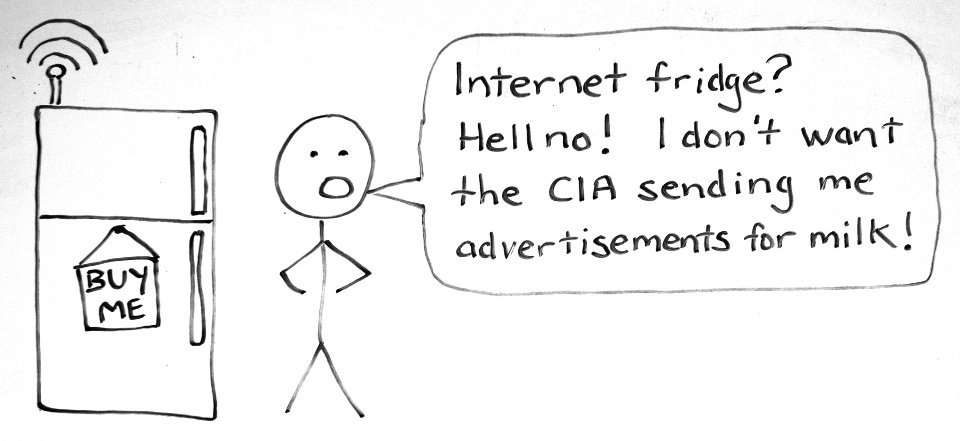
Disney just announced that they will use RFID wristbands for the patrons of their theme parks (simply Google “Disney RFID” for more than you’d ever want to read). The list of advantages is long: combined room key / park pass, cashless payments, VIP services, personalized interactions with characters, on rides and in lines, etc., and it’s totally opt-in. Sounds like the world-class Disney PR team checked off all the right boxes when pitching this, right?
All persons shall surrender their worldly possessions to Diz-Nee Land. Resistance is futile. Stand in line where directed. Silence!
George Orwell’s estate should get a nickel for every bracelet sold. It may soon become impossible to leave the house without being identified and branded for more endless sales pitches through every means available.
You need to relax; soon enough Disney will isolate the gene responsible for free will, and we’ll have no need to worry.
These quotes from the New York Times article on the announcement highlight the pronounced knee-jerk reaction of many to any mention of human identification through technology: it’s Big Brother.
What about the Internet of Things? It’s effectively the Identity of Things: Things that may be found in homes and carried by people. And the Internet of Things, which has only recently become a hot topic, doesn’t have a Disney PR machine behind it. How’s it doing on the Orwellian front? Well, if the recent article entitled Big Brother’s Big Data: Why We Must Fear The Internet Of Things is any indication, they clearly share an older male sibling.
Will these reactions stop Disney from moving ahead with their plans? Unlikely. Will these reactions stop connected Things in their tracks? Of course not. Will these reactions continue to represent one of the greatest barriers to ubiquitous identification and connection technology? Most certainly. In our previous blog post Connected Things: a decade of progress? we concluded that it’s not technology that’s holding us back. Simply stated, if we want this to happen, we have to want this to happen! An opt-in approach with clear benefits may not be enough: Big Brother equates to a fear of who can access and control the information and with what intent.
Comments
2 responses to “Big Brother and the Identity of Things”
[…] at the top of the food chain”. Depending on who controls the data and with what intent (see Big Brother and the Identity of Things), this may be a scary thought. But with an open IoT, just like the open Internet before it, this […]
LikeLike
[…] opt-out WiFi tracking and the knee-jerk reaction to identification and location technologies (see Big Brother and the Identity of Things), and it does not bode well for the future. What contextual technologies need are opt-in […]
LikeLike